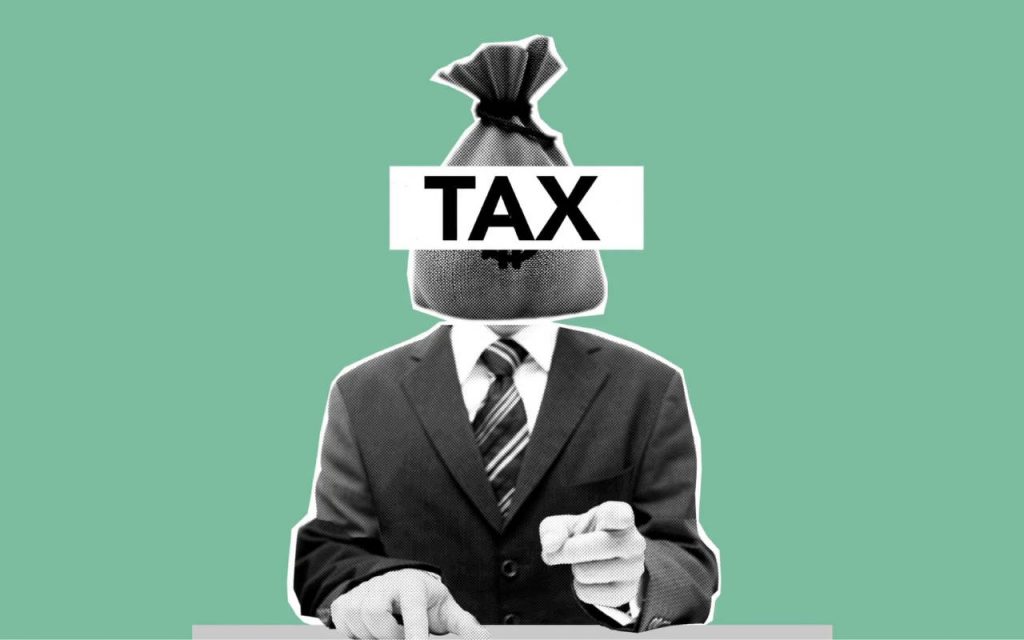Quick information on PPT
- PPT applies to any plastic packaging made of more than 70% virgin material
- Manufacturers must be able to prove that their plastic is at least 30% recycled
- The rate of tax is £200 per tonne (20p per Kg)
- The tax applies to plastic packaging in the supply chain
- The tax applies to consumer-level single use plastic packaging
- Recycled plastic can be post-consumer – or pre-consumer, with caveats (read on)

Your guide to PPT
On April 1st 2022 – that’s right, April Fool’s Day – HM Revenue & Customs implemented the Plastic Packaging Tax, otherwise known as PPT.
It wasn’t without fair warning, though. PPT has been on the cards since at least the 2017 Budget – and in 2018, a new tax on plastic packaging with less than 30% recycled plastic was announced. The tax was finalised in 2021, and now in 2022 – PPT is ready to go.
What’s the goal of the PPT?
The official line that the 2022 plastic tax will “provide a clear economic incentive for businesses to use recycled plastic material in plastic packaging”.
On paper, this should create higher demand for recycled material, and boost recycling programs. But rather than incentivise the use of recycled material, the plastic tax will penalise the use of virgin material – and this will have an impact on industries (and consumers) already facing mounting costs.
So, what does all of this mean and how will it affect you and your business? Let’s try to make sense of the PPT, starting with exemptions, and clarifying what’s taxable.
Exemptions and permissions – clarifying pre-consumer material
Any plastic packaging made of at least 30% post-consumer recycled material will be completely exempt from the plastic tax. Nice and easy – but it’s a trickier material to work with and requires more processing, and will leave many industries out.
Packaging made with 30% pre-consumer recycled material may also be exempt. It’s overall a better, purer material – but what counts as “recycled” under the Plastic Packaging Tax has redefined the meaning of pre-consumer recycled plastic.
Read more about recycled plastic types
To clarify, your 30% blend can include pre-consumer recyclable material that has:
✅ Come from industrial, commercial or logistics sources
But cannot include:
❌ Scrap or regrind from manufacturing, UNLESS:
The recovered material requires reprocessing – melting and extrusion into pellets before it can be reused. Reformed pellets made from manufacturing waste can be treated as recycled plastic for any process.
Plastic Packaging Tax rate
The rate of Plastic Packaging Tax is 20p per Kg, or £200 per tonne.
What impact will the Plastic Packaging Tax have?
Time will only tell if the 2022 plastic tax will actually benefit the environment and increase recycling rates. But there is some certainty; it will impact manufacturers, industries – and consumers.
Manufacturing impact
Polymer prices are going up – regardless of whether the material is virgin or recycled. Manufacturers are having to rethink their own supply chains and adapt their processes.
Post-consumer polythene (and pre-consumer as defined by the PPT) is also trickier to work with in some cases. That’s because polythene degrades slightly with each round of reprocessing, which puts restrictions on how thin recycled plastic can be made. This makes film manufacturing at thinner gauges much more application-specific; for instance, it might be suitable for general purpose protective films and polythene bags, but not for applications where the tensile strength of virgin polythene is required.
According to the government guidelines on records and accounts for PPT, manufacturers and importers will also have to prove the validity of their 30% recycled claims, which will add administration costs, too.
Industrial impact
The two sectors that immediately spring to mind are food and medicine – but there are many others that will be impacted.
The food and medical sectors will be forced to pay the PPT, because it is generally not acceptable to use recycled plastic packaging for food or medical applications. Post-consumer plastic can lack clarity and may impart a slight odour. Its lower integrity makes it less useful for medicine.
Read more – every industry that uses polythene
Same goes for farming, where silage wrap cannot contain recycled material. Virgin polythene packaging must be used, and this means higher costs, invariably passed to consumers.
Consumer impact
With general day-to-day living prices going up, soaring energy prices and stagnant wages, the PPT will compound the cost of living struggles for many. Food costs are already elevated, and the Plastic Packaging Tax will raise them once again.
But – companies who use polythene packaging throughout their processes may be able to reduce this impact, by switching to a recycled polythene blend wherever possible, and establishing an economic strategy that minimises their reliance on virgin polythene.
And NPF Packaging can help..
Navigate the PPT with tax-free packaging from NPF
The friendly, knowledgeable team at NPF Packaging will help you navigate the 2022 plastic tax. Get 30% recycled polythene packaging that’s exempt from the Plastic Packaging Tax, made to your exact specification.
We’ll help you find the right packaging solution for your business, minimising all unnecessary virgin material where possible, to keep your packaging costs down.
Send us a message, or call us on 01773 820415, to tell us what you need.


